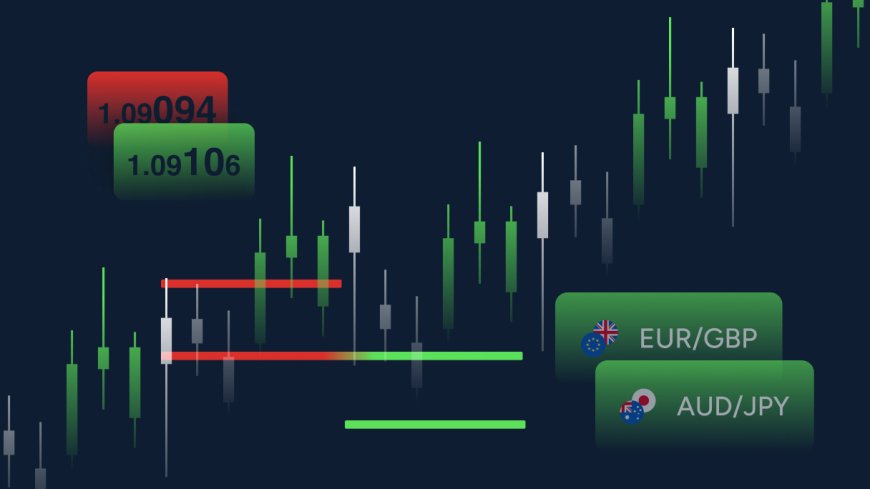Forex Trading Italy
Forex Trading Italy, Stock investments, Forex, Cryptocurrency & Meme Coins Trading best forex trading brokers myfastbroker.com forex brokers online fintechzoom best.

Forex Trading in Italy: A Comprehensive Guide
Forex trading, also known as foreign exchange trading, involves the buying and selling of currency pairs to profit from changes in exchange rates. As the largest financial market globally, the forex market attracts millions of traders, including those in Italy. This guide provides a detailed overview of forex trading in Italy, covering its regulatory environment, best practices, strategies, and frequently asked questions.
The Forex Market in Italy
1. Overview of Forex Trading in Italy
Italy is part of the European Union, and its forex trading environment is influenced by EU financial regulations. The forex market operates 24 hours a day, five days a week, offering numerous opportunities for Italian traders to engage in the global currency market.
2. Regulatory Framework
Forex trading in Italy is regulated by Commissione Nazionale per le Società e la Borsa (CONSOB), the country’s financial regulatory authority. CONSOB ensures that brokers comply with the EU's MiFID II (Markets in Financial Instruments Directive) regulations, providing Italian traders with a secure and transparent trading environment.
3. Popular Forex Brokers in Italy
Many international and local brokers operate in Italy, offering platforms in Italian and adhering to CONSOB regulations. Some popular brokers include:
- eToro: Known for social trading.
- IG: Offers a wide range of currency pairs and educational resources.
- Plus500: A user-friendly platform ideal for beginners.
- XM: Provides low spreads and diverse account types.
How to Start Forex Trading in Italy
- Learn the Basics: Understand key concepts like pips, spreads, leverage, and margin.
- Choose a Reliable Broker: Ensure the broker is CONSOB-regulated.
- Open a Demo Account: Practice trading with virtual money to understand the platform.
- Fund Your Trading Account: Deposit funds using secure payment methods, such as credit cards, bank transfers, or e-wallets.
- Develop a Trading Strategy: Use technical and fundamental analysis to guide your trades.
- Start Trading: Begin with small positions and gradually increase your trades as you gain confidence.
Strategies for Forex Trading
1. Scalping
Short-term trading strategy focusing on small price changes. Suitable for traders who can dedicate several hours daily to trading.
2. Day Trading
Trades are opened and closed within the same trading day, avoiding overnight risks.
3. Swing Trading
Targets medium-term price movements, holding positions for days or weeks.
4. Trend Following
This strategy involves identifying and trading in the direction of strong market trends.
5. News-Based Trading
Capitalizes on market volatility triggered by economic news and events.
Benefits of Forex Trading in Italy
- Accessibility: Trade online from anywhere with an internet connection.
- High Liquidity: Enables quick entry and exit from positions.
- Leverage Options: Amplifies potential profits (though it also increases risks).
- Diverse Markets: Access to a wide range of currency pairs.
Risks of Forex Trading
- Market Volatility: Sudden price movements can lead to significant losses.
- Leverage Risks: While leverage can amplify gains, it can also magnify losses.
- Psychological Challenges: Emotional trading can lead to poor decisions.
FAQs on Forex Trading in Italy
1. Is forex trading legal in Italy?
Yes, forex trading is legal in Italy and regulated by CONSOB. Italian traders must ensure they work with CONSOB-authorized brokers.
2. Do I need a license to trade forex in Italy?
No, individuals do not need a license to trade forex. However, brokers offering services in Italy must be licensed and regulated by CONSOB.
3. What taxes apply to forex trading profits in Italy?
Forex trading profits are considered capital gains in Italy and are subject to a 26% tax rate. Traders should consult a tax professional for specific guidance.
4. What is the minimum deposit for forex trading?
The minimum deposit varies by broker. Some brokers allow you to start trading with as little as €100.
5. Can I trade forex on my smartphone?
Yes, most brokers offer mobile trading apps compatible with iOS and Android devices.
6. What are the best times to trade forex in Italy?
The best trading hours depend on the currency pairs you trade. For instance, trading EUR/USD is most active during the European and U.S. market overlaps (2 PM to 6 PM CET).
7. How can I avoid forex trading scams?
- Trade with CONSOB-regulated brokers.
- Avoid offers promising guaranteed profits.
- Be cautious of unregulated brokers operating offshore.
8. Is forex trading suitable for beginners?
Yes, with proper education and a disciplined approach, beginners can start forex trading. However, beginners should practice with a demo account before trading with real money.
9. What currency pairs are most popular among Italian traders?
The EUR/USD, GBP/USD, and USD/JPY pairs are among the most traded due to their liquidity and low spreads.
10. Can I use automated trading systems in Italy?
Yes, many brokers support automated trading systems and trading robots. However, traders should test these systems on a demo account before using them live.
Conclusion
Forex trading in Italy offers numerous opportunities for those willing to invest time and effort in understanding the market. By adhering to regulatory guidelines and employing effective trading strategies, Italian traders can navigate the forex market successfully. Always remember to trade responsibly and continuously update your knowledge to stay ahead in this dynamic market.

 btxadmin
btxadmin 





